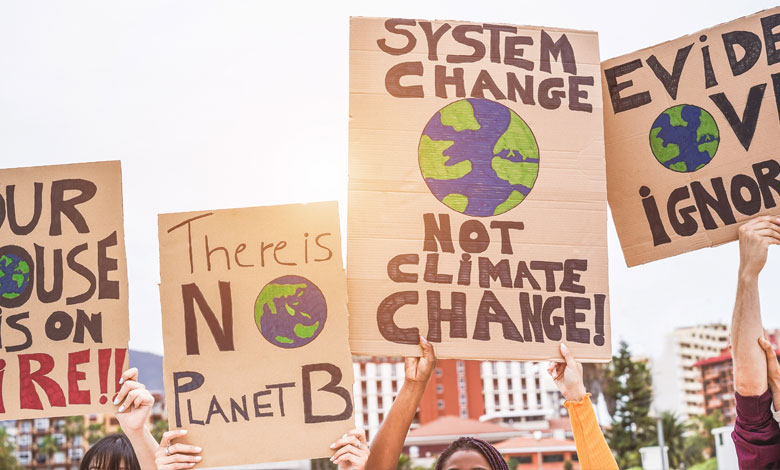A colossal missed opportunity

Ireland faces fines of up to €26 billion to the EU “if it does not step up climate action swiftly”, according to a joint report by the Climate Change Advisory Council (CCAC) and the Irish Fiscal Advisory Council (IFAC).
The report, A colossal missed opportunity, published in March 2025, says that if the State remains on its current trajectory, Ireland will face fines of between €8 billion and €26 billion to the EU.
However, the report also states that if the Government follows through on its Climate Action Plan ambitions for 2030, this would reduce potential costs by more than half. However, the plan is “not being delivered at the scale or the speed required”.
“With a faster and more comprehensive approach to implementing measures under the plan, it could potentially result in a fall of potential costs to between €3 billion and €12 billion,” the report states.
Under the Climate Action Plan and subsequent Climate Action and low Carbon Development (Amendment) Act 2021, the State is legally obliged to reduce its greenhouse gas emissions by 51 per cent by 2030, and reach net zero greenhouse gas emissions by 2050. These targets exceed EU strategic targets, but the State is currently on tract to reduce emissions by only 29 per cent.
Three actions
To illustrate how stronger policy would help, the report sets out three key actions that can reduce the scale of charges looming over the State: Upgrading Ireland’s energy grid, speeding up the roll out of electric vehicles, and supporting changes in farming practices.
These measures, the report asserts, would cost “just one-tenth of capital spending planned by the Government out to 2030” and they are “less than half the upper cost estimate for missing targets”.
1. Reduce the cost of EVs
The report suggests reducing the cost of 700,000 new EVs to below €15,000 per unit, alongside an expansion of the national charging network. This investment, estimated at approximately €4 billion, aims to encourage a substantial shift in the private vehicle market away from internal combustion engines.
“The Government must take clear and decisive action now to transition to a climate neutral economy.
Marie Donnelly, Chair of the Climate Change Advisory Council
The shift is intended to support emissions reduction targets under the Effort Sharing Regulation, particularly in the transport sector, which accounts for approximately one-quarter of emissions covered by the regulation. The measure would require coordination across the Department of Transport, the SEAI, and local authorities.
Failure to implement this measure “risks exacerbating Ireland’s projected non-compliance with transport sector emissions targets”, while successful implementation would “contribute to meeting EU obligations and reduce exposure to fossil fuel price volatility”. Broader benefits include improved air quality and technological spillover into related sectors such as grid storage and renewable energy.
While the since-published Climate Action Plan 2025 has announced measures for expanding EV charging infrastructure, the challenge of cost is not addressed in the latest update to the Climate Action Plan.
2. Upgrading the electricity grid
The report says that a “modernised, expanded, and digitised” grid is necessary for integrating increased levels of renewable electricity, particularly wind and solar, into the national energy mix.
The grid upgrade is framed as a strategic enabler of other policy measures, including offshore wind development, expanded electrification, and the deployment of distributed energy resources. The current grid infrastructure is insufficient to handle future demand scenarios.
Without action, the report says that the State “may fall short of the Renewable Energy Directive targets”, which call for a 43 per cent renewable share by 2030.
“Delays in delivery or underinvestment would likely constrain the pace of decarbonisation, increase compliance costs, and reduce Ireland’s energy security over the medium term,” the report states.
3. Forestry and peatland restoration
The allocation of €1 billion toward forestry expansion and peatland rewetting forms a core component of Ireland’s proposed nature-based solutions under the Land Use, Land Use Change, and Forestry (LULUCF) Regulation.
Current projections indicate that without further action, Ireland will exceed its LULUCF emissions target by over 18 MtCO₂eq by 2030. Rewetting drained peatlands and afforestation efforts are “central to shifting the sector toward becoming a net sink”. Funding is expected to support a combination of landowner incentives, technical assistance, and capital works on degraded land.
The report outlines that ecological benefits of such actions – enhanced biodiversity, water regulation, and carbon sequestration – are “well documented”. However, it warns that the policy must be underpinned by robust monitoring and verification systems to ensure emissions reductions are both “real and durable”.
Successful implementation would not only mitigate financial risks arising from non-compliance but also contribute to Ireland’s broader environmental objectives under the EU Biodiversity Strategy. Without intervention, Ireland faces both higher costs and reputational risks in the international climate governance space.
Reaction
Seamus Coffey, Chair of the Irish Fiscal Advisory Council, says: “This is a clear case of being able to reduce a massive fiscal risk. Ireland can take actions now to offset potential costs down the line. It can do so in a way that does not threaten the wider sustainability of the public finances.”
Marie Donnelly, Chair of the Climate Change Advisory Council says: “While we have made some progress in reducing emissions, our pace of change is not enough to meet our national and EU climate targets.
“The Government must take clear and decisive action now to transition to a climate neutral economy. It is better to make the investments into Irish households, communities and businesses now, rather than paying significant compliance costs in the years ahead.”





